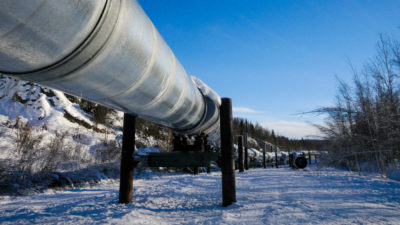It seems Suncor Energy Inc.(TSX:SU)(NYSE:SU), Canada’s largest integrated oil producer, is starting to feel the effects of protracted oil price weakness, and has responded by reducing capital expenditures for 2015 by $1 billion, operating expenses by $800 million, and total workforce numbers by 1,000.
These moves have been surrounded by a host of analyst downgrades, with Citi Research analysts most recently downgrading Suncor to a neutral, citing factors such as the weak Canadian dollar and declining heavy oil differentials being insufficient to offset the impact of such a large decline in crude prices.
With the future of oil prices highly uncertain, investors may be wondering if Suncor is still a safe long-term hold. Price volatility is a reality for commodity-based companies like Suncor, and it is unrealistic to assume prices will always be strong. Having said that, a strong company will be adequately prepared to perform well and create value for shareholders in all price environments.
What factors ensure a company’s ability to weather downturns? Capital discipline, an economic edge that can lead to higher than average netbacks, and a program of returning cash to shareholders who hold during volatile periods.
Let’s take a look at how Suncor performs in these areas.
Capital discipline
Suncor currently has one of the strongest balance sheets in the industry. With a low debt-to-equity ratio of 0.89, a net debt of only $6.3 billion, and $5.3 billion of cash on hand, Suncor is well positioned to weather any price weakness, while being prepared act quickly should any attractive acquisition opportunities arise.
In fact, with only $6.3 billion of net debt (for a company with a $55 billion market cap) Suncor currently has the lowest net debt as a percentage of EBITDA out of its 10 largest competitors.
This strong balance sheet flows directly out of Suncor’s strategy, which places strong emphasis on capital discipline and spending within its means. Suncor CEO Steve Williams is focused on responsible capital spending, including optimizing the current asset base, and only deploying capital to the best returning projects, while returning the rest to shareholders.
The recently announced cuts to Suncor’s capital budget is an extension of this strategy, but it is important to note that the company’s two largest growth projects (Fort Hills and Hebron) are still active and production remains unchanged, which means Suncor has not sacrificed future growth substantially with the budget cuts.
In addition, Suncor recently posted a record low cash operating cost per barrel of $31.10, thanks to record production from the oil sands segment, strong reliability, and a focus on cost management. These costs have been steadily trending downward from nearly $40 in 2011, and will allow Suncor to operate in a weak price environment.
An economic edge
Suncor’s strong balance sheet and excellent cost profile bode well for its ability to weather a downturn, but Suncor has also been able to earn consistently higher netbacks than its peers, which further boosts performance in weak periods.
Since 2010, Suncor’s netbacks have been $45 per barrel, significantly above the peer average of $37 per barrel. This is due to Suncor’s ability to achieve global pricing on 97% of its production, thanks to its integrated strategy.
By integrating its upstream production with its downstream refining operations, Suncor has flexibility in various market conditions. If oil sands prices are strong, Suncor can choose to sell its product directly to the market, and if prices are weak, Suncor can instead use its refining operations to upgrade oil sands crude into more valuable refined products.
This, combined with strong market access, has resulted in only 3% of Suncor’s production being sold at lower WTI prices in Q3/2014, and exceptional cash flows.
A program of rewarding shareholders
Suncor does very well in terms of controlling costs, and earning solid netbacks, both which enable it to weather the downturn well and reduce share price volatility. In the meantime, Suncor has been rewarding shareholders with 12 consecutive years of dividend increases, and nearly $5 billion of share repurchases since 2011 (cancelling nearly 10% of outstanding shares).
With this is mind, Suncor seems like it is still a safe, long-term investment, and is able to remain profitable until better price conditions return.







